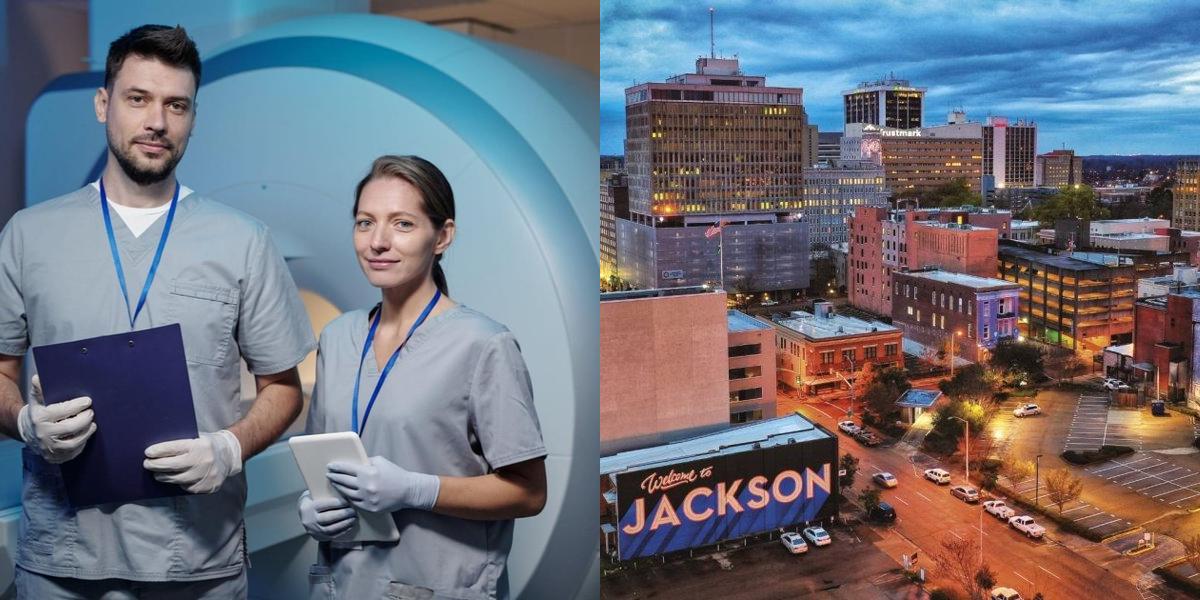How to Become a Radiology Technician in Mississippi

Radiology technicians, also known as radiologic technologists or radiographers, play a crucial role in the healthcare industry by operating imaging equipment to help diagnose and treat medical conditions. They work closely with physicians and other healthcare professionals to obtain high-quality diagnostic images.
Step 1: Prepare your resume and cover letter
Start by preparing a professional resume and cover letter that highlights your education, clinical experience, and any relevant skills or certifications. Tailor your resume to the specific job you are applying for and include any additional certifications or specialized training you may have.
Step 2: Network
Networking is an essential aspect of any job search. Reach out to friends, family, and classmates who may be working in the healthcare field or have connections in the industry. Attend professional conferences, job fairs, and industry events to meet professionals in the field and learn about job opportunities.
Step 3: Search for job openings
Utilize online job boards, professional networking sites, and healthcare organization websites to search for job openings. Some popular job boards for healthcare professionals include Indeed, Monster, and LinkedIn. Additionally, check with local hospitals, imaging centers, and medical clinics for any available positions.
Step 4: Prepare for interviews
Once you have applied for a job and been selected for an interview, it is essential to prepare yourself. Research the organization and the specific role you are applying for. Practice common interview questions and be prepared to discuss your education, clinical experience, and why you are interested in the field of radiology.
Step 5: Gain additional certifications or specialized training
Obtaining additional certifications or specialized training can help make you a more competitive candidate for Radiology Technician positions. For example, you may consider becoming certified in a specific modality such as CT scanning or MRI. These additional certifications can enhance your skills and make you more valuable to potential employers.
Step 6: Consider relocation
If you are struggling to find job opportunities in your current location, consider expanding your search to other cities or states. Some areas may have a higher demand for Radiology Technicians, which can increase your chances of finding a job.
Career Paths and Opportunities after Becoming a Radiology Technician
After becoming a Radiology Technician, there are several career paths and opportunities you can explore. Here are a few options:
Specialization in a specific modality
Radiology Technicians can choose to specialize in a specific modality such as CT scanning, MRI, mammography, or nuclear medicine. By obtaining additional certifications and training in these areas, you can expand your skillset and increase your job opportunities. Specializing in a specific modality may also lead to higher pay and more advanced job roles.
Radiology Supervisor or Manager
With experience and additional education, Radiology Technicians can advance to supervisory or managerial roles. In these positions, you will be responsible for overseeing a team of Radiology Technicians, managing schedules and workflow, and ensuring quality control. This career path allows you to utilize your technical skills while also developing leadership and management abilities.
Education and Training
Some Radiology Technicians choose to pursue careers in education and training. They may become instructors at radiologic technology programs, teaching future Radiology Technicians the necessary skills and knowledge. Others may work for healthcare organizations or equipment manufacturers, providing training and support to Radiology Technicians on the use of imaging equipment.
Radiology Sales or Marketing
For those interested in combining their healthcare knowledge with sales and marketing skills, a career in radiology sales or marketing may be a good fit. In these roles, you will work for medical equipment manufacturers or healthcare organizations, promoting and selling imaging equipment and services. This career path allows you to utilize your understanding of radiology and imaging technology while also developing sales and marketing skills.
Final Thoughts
Becoming a Radiology Technician is an exciting and rewarding career choice. It requires dedication, education, and a commitment to lifelong learning. By following the steps outlined in this article, you can obtain your Radiology Technician certification and start your journey towards a successful career in the field of radiology. Remember to stay updated on advancements in technology and continue to develop your skills to stay competitive in the job market. Good luck on your journey to becoming a Radiology Technician!
If this article doesn't match what you're looking for, you can check out these other articles:

Athena is Co-founder and CEO of Dreambound.



